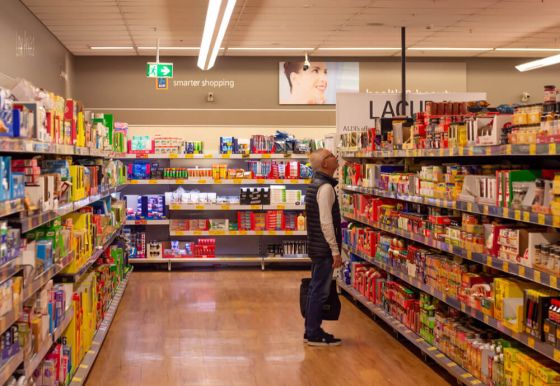The average Australian family could save up to $2,468 a year on groceries by shopping at ALDI, according to the budget supermarket’s 2022 Price Report.
The latest findings reveal a price gap of 15.6% between ALDI’s cheapest products and that of its competitors, including Woolworths and Coles. This means a basket of groceries is at least 15.6% cheaper at ALDI than at other supermarkets, which would see an average Aussie family save up to $1,555 a year by making the switch to ALDI – if they’re already buying the cheapest products (i.e. specials, homebrands, etc.) somewhere else.
Aussie families who buy branded groceries could save even more – roughly $2,468 per year by shopping at ALDI – with the price gap for branded products being significantly higher at 24.7% when comparing ALDI prices to equivalent branded products at other supermarkets.
The average family could save up to 19% on meat if they shop from the store’s fresh meat range and up to 30% on general grocery items for equivalent branded products, according to the supermarket’s data.
You may also be interested in:
- What is unit pricing? How to work out the real cost of groceries
- Best-rated supermarket fruit & veg
- Best-rated supermarket meats

Similar research on average grocery bills conducted by Canstar Blue revealed a similar trend with Aussies who shop at ALDI paying less for groceries per week than those who shop at Coles and Woolies. ALDI shoppers spend an average of $144 on weekly groceries (single and multi-person households combined), while Coles shoppers spend an average of $154 and Woolworths shoppers spend $156 per week at the supermarket.
Another recent Canstar Blue survey revealed a whopping 71% of Australian shoppers have noticed an increase in the overall cost of groceries, especially on fruits and vegetables, meat, dairy products, and bread. Over a third of consumers surveyed (35%) said they’ve had to cut back on groceries due to rising costs, while 25% now stick to only buying essential items and no luxuries. One in ten Aussies (10%) have even looked at extra sources of income to supplement their grocery spending.
Other key findings from Canstar Blue include:
- Over half of Australians (57%) think supermarkets are using COVID-19 and economic events to introduce unnecessary price increases
- A third of shoppers (30%) are more careful to compare unit prices to ensure they’re not overpaying at checkout
- A fifth of consumers (23%) now buy fewer brand-name products and more supermarket-branded products

Share this article